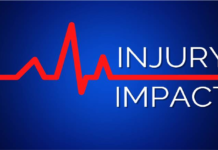The high court will decide whether Christian pregnancy centers have a right to mislead women.
Inside the chicly decorated clinic, the receptionist wore bright purple scrubs. There were no signs on the wall or brochures to indicate that Caitlin was not in a real doctor’s office.
The 23-year-old graduate student, home in San Antonio for Christmas break, had found the place by Googling “free STD testing San Antonio.” She usually got tested at the Planned Parenthood clinic in Austin, where she attended the University of Texas, but she was looking for a clinic near her parents’ house. The Google search pointed her to a woman’s health center in a ritzy part of town near a hospital. It was called Any Woman Can, and now here she was, having produced a urine sample, following a middle-aged woman into a private room for what Caitlin thought would be a conversation about the test results.
Instead, the woman “started asking me a lot of really emotionally intense and invasive questions,” Caitlin said.
“The first and last name of my current partner and where he lives; what age I lost my virginity; whether I had been molested as a child, or if I’d ever been raped or had an abortion. I said, ‘Is this really medically important? Is it OK if I don’t answer?’”
The woman continued to read questions from her script, each of which Caitlin declined to answer. Eventually she informed Caitlin that she had chlamydia.
Caitlin had never been diagnosed with a sexually transmitted infection before and naturally had many questions about what chlamydia is and how to treat it. But the woman “kept trying to steer the conversation away from the medical stuff.” She couldn’t prescribe the necessary antibiotic nor was there anyone on staff who could. She couldn’t even refer Caitlin to a doctor for treatment.
Upon leaving the clinic, Caitlin realized she had to find a real doctor and make a second appointment for an STI test, because she didn’t trust the first. “I went to the parking lot and cried for a while. I felt so gross, so deeply weirded out.”
Any Woman Can is part of a nationwide network of over 3,000 “crisis pregnancy centers” (CPCs) established by evangelical Christians to dissuade women from having abortions. They masquerade as women’s health clinics ― advertising free STD testing and pregnancy services, dressing their staffers in scrubs and setting themselves up near hospitals ― but they often have no licensed medical professionals on staff.
These centers ― “fake clinics,” as reproductive rights groups call them ― are the subject of the U.S. Supreme Court’s first abortion-related case under President Donald Trump. When arguments begin Tuesday, an attorney representing the Christian-run Pregnancy Care Clinic in El Cajon, California, will argue before the high court that California violated the clinic’s constitutional right to free speech by enacting a law that requires centers that are licensed as family planning facilities to notify women that the state offers free or low-cost birth control and abortion services. The law also requires pregnancy centers to disclose if they have no medical providers on staff.


















